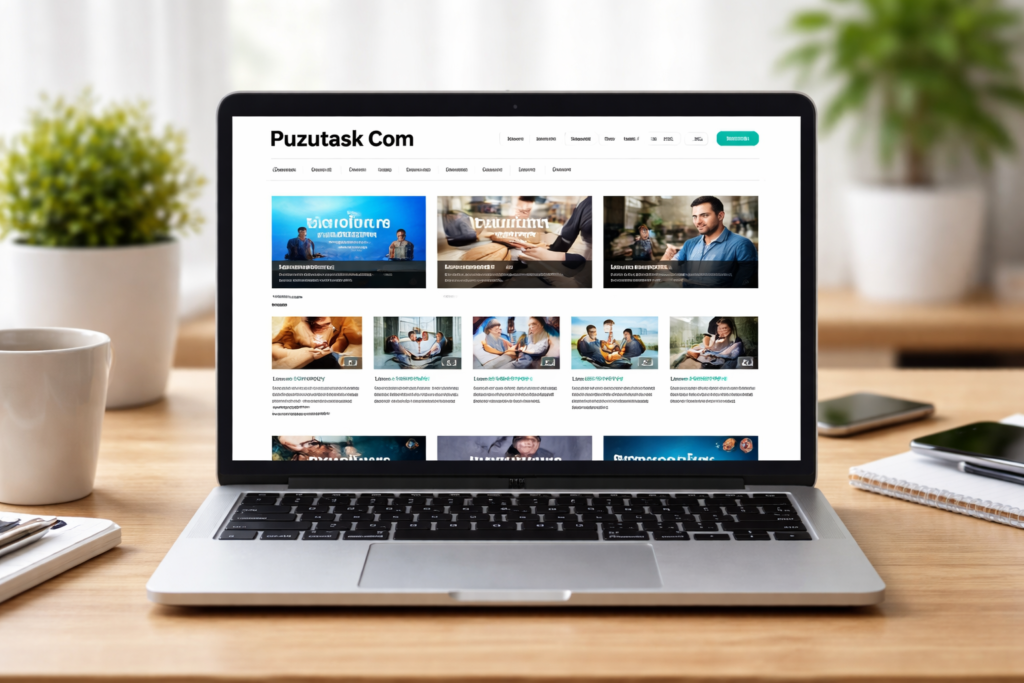What Is Procurement Software & Why Does Your Company Need It?

In today’s fast-paced and competitive business environment, efficiency is everything. Whether you’re a small startup or a large enterprise, your ability to manage procurement effectively can directly impact your profitability and growth. That’s where procurement software comes into play.
Procurement software is no longer a luxury reserved for large corporations. With growing vendor lists, fluctuating inventory needs, and the pressure to cut costs, more companies are realizing the value of investing in a robust procurement system. But what exactly is procurement software, and how can it benefit your business?
What Is Procurement Software?
At its core, procurement software is a digital tool designed to automate and manage a company’s purchasing process. It streamlines everything from requesting quotes and creating purchase orders to tracking inventory and paying invoices. By consolidating procurement activities into one centralized system, businesses can gain better visibility, improve efficiency, and reduce manual errors.
Most procurement software solutions offer features like:
- Supplier management: Keep track of vendor details, ratings, and contract terms.
- Purchase order automation: Easily create and approve POs with customizable workflows.
- Invoice reconciliation: Match invoices to purchase orders and delivery receipts.
- Inventory control: Monitor stock levels and automate reorder points.
- Spend analysis and reporting: Track procurement trends, vendor performance, and opportunities for savings.
Why Procurement Software Is Critical for Modern Businesses
Without the right systems in place, procurement can become chaotic. Manual processes, duplicate entries, lost paperwork, and inconsistent approvals can cost companies time and money. Procurement software addresses these challenges by streamlining workflows and improving collaboration across departments.
1. Enhances Operational Efficiency
By automating routine tasks such as purchase approvals, order tracking, and invoice processing, procurement software drastically reduces the administrative burden on your team. This frees up time for strategic activities like supplier negotiations and cost-saving initiatives.
Automation also helps ensure that approvals are processed consistently and according to company policy, reducing bottlenecks and ensuring transparency in every transaction.
2. Promotes Better Supplier Management
Strong supplier relationships are built on trust, transparency, and timely communication. Procurement software gives businesses the tools to maintain accurate supplier records, monitor performance metrics, and communicate efficiently with vendors.
Additionally, having a centralized database of all supplier interactions and contract terms enables procurement teams to make more informed decisions and negotiate better deals.
3. Increases Cost Control and Spend Visibility
Procurement software provides detailed insights into how money is being spent. Real-time dashboards and reporting tools help you analyze spending patterns, identify high-cost areas, and uncover savings opportunities.
For example, businesses can use spend analysis features to consolidate purchases with preferred suppliers or renegotiate contracts based on historical data.
4. Reduces Risk and Improves Compliance
Managing risk in procurement goes beyond ensuring on-time delivery. It involves ensuring compliance with regulatory standards, avoiding supplier fraud, and reducing dependency on a single vendor.
With procurement software, organizations can automate compliance checks, monitor supplier credentials, and keep records for auditing purposes. This minimizes the risk of human error and supports stronger governance.
5. Supports Scalability and Growth
As your business expands, so do your procurement needs. Manual processes that once worked for a smaller team become inefficient and error-prone.
Scalable procurement software grows with your organization. Whether you’re onboarding new suppliers, entering international markets, or dealing with higher transaction volumes, the right system will ensure consistency, control, and accuracy across all your procurement activities.
Choosing the Right Procurement Software for Your Business
Not all procurement software solutions are created equal. Here are key considerations to keep in mind when selecting the right tool:
- Ease of use: Choose software with an intuitive interface to reduce the learning curve.
- Integration: Ensure it integrates with your existing ERP, accounting, and inventory systems.
- Customization: Look for platforms that can adapt to your company’s unique procurement workflows.
- Security: Protect sensitive vendor and financial data with enterprise-grade security features.
- Customer support and training: Consider vendors that offer comprehensive onboarding, training, and ongoing support.
Before making a decision, involve stakeholders from procurement, finance, and IT to assess the solution’s fit across departments.
Types of Procurement Software
Depending on your business size and needs, you may opt for:
- Standalone procurement platforms: Focus solely on procurement functions and offer deep, specialized features.
- ERP-integrated procurement modules: Part of broader enterprise solutions, offering cross-functional integration across departments like finance, HR, and operations.
- Cloud-based procurement solutions: Offer flexibility, faster implementation, and lower upfront costs, ideal for growing businesses.
The Future of Procurement Software
Technology is advancing rapidly, and procurement software is no exception. The next generation of tools is being shaped by artificial intelligence (AI), machine learning, and blockchain.
AI and Machine Learning
These technologies are enabling smarter procurement decisions by analyzing large volumes of data and providing predictive insights. From identifying supplier risks to forecasting demand, AI-powered tools are transforming procurement from a reactive function to a strategic driver.
Blockchain and Transparency
Blockchain can bring unprecedented transparency and traceability to procurement. Smart contracts, tamper-proof transaction records, and decentralized verification processes are expected to enhance trust and security in supplier networks.
Mobile and Remote Procurement
With hybrid work models becoming more common, mobile-friendly procurement software allows teams to manage approvals, orders, and communication from anywhere, improving responsiveness and reducing delays.
Final Thoughts
Procurement software is more than just a digital solution—it’s a strategic enabler. By automating processes, improving supplier collaboration, and providing data-driven insights, it empowers companies to make smarter, faster, and more cost-effective purchasing decisions.
If your company is still relying on spreadsheets or manual systems to handle procurement, it may be time to consider the benefits of implementing procurement software. As competition increases and supply chains grow more complex, having the right tools in place can make all the difference.

How Sales Teams Increased Productivity with Parallel Dialers

Curtain Dry Cleaning and Leather Sofa Cleaning – Reliable Care by Duo Nini

Brian Ferdinand of EverForward Trading Joins Forbes Finance Council, Expanding His Voice on Markets and Risk

How Technology Is Changing Addiction Recovery in the Digital Age.

Our First Winter Trip to Aspen — And the Decision That Made It Stress-Free

How Technology Is Changing Addiction Recovery in the Digital Age.

Puzutask Com: Complete Guide, Reviews, and Login Information

Solve SMD Diodes Sourcing with Utsource's Bulk Options








